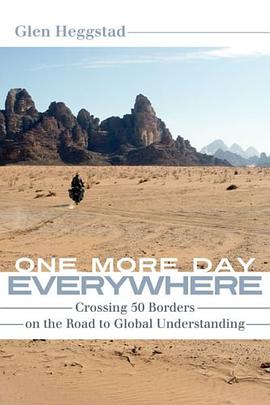

具体描述
Book Description
The attacks of September 11, 2001, were a calamity on a scale few had imagined possible. In their aftermath, we often exaggerated the men who perpetrated them, shaping hasty and often mistaken reporting into caricatures we could comprehend — monsters and master criminals equal to the enormity of their crimes. In reality, the 9/11 hijackers and their cohorts were unexceptional men, not much different from countless others. It is this enemy, not the caricature, that we must understand if we are to have a legitimate hope of defeating terrorism.
The intent of this book is to uncover a better understanding of who the hijackers were and, thereby, why they did what they did. Perfect Soldiers traces these men's lives and the evolution of their beliefs, putting a human face on heinous acts. Most of the hijackers were from apolitical and only mildly religious backgrounds. As they came of age, though, they were shaped by historical tides and their own circumstances, evolving into devout, pious Muslims. In fundamentalist Islam, religion and politics are inseparable; they saw themselves as pilgrims, soldiers of God. In the end, this is a story about the power of belief to remake ordinary men.
Matching unrivaled research, undertaken in twenty countries on four continents, with a voice that is engaging, authoritative, and thought-provoking, Los Angeles Times correspondent Terry McDermott provides detailed portraits of the main players of the 9/11 plot, including by far the most comprehensive study yet produced of Khalid Sheikh Mohammed, the plan's mysterious engineer. With brilliant reporting and thoughtful analysis, McDermott brings us a clearer, more nuanced, and in some ways more frightening understanding of the landmark event of our time.
Amazon.com
From Publishers Weekly
It's taken three-plus years for a serious study of the hijackers, but the wait was worth it. L.A. Times reporter McDermott has dug deep, interviewing scores of friends, relatives and officials worldwide and trawling through troves of documents. Engrossing and deeply disturbing from the start, the book begins with two events Americans rarely connect: Russia's retreat from Afghanistan in 1989, followed in 1990 by Western troops pouring into Saudi Arabia after Iraq's invasion of Kuwait. McDermott shows victory in Afghanistan electrifying Islamic warriors who hated Christianity as much as communism; a new "infidel" army to fight proved an irresistible challenge. For McDermott, this moment marks the beginning of organized, nonstate-supported terrorism. Not very organized, he adds, describing half a dozen plots cobbled together by clumsy enthusiasts who were often caught—though often too late. Despite the media attention paid to bin Laden, McDermott paints him not as the führer of terrorism, but as a rich leader with the most aggressive P.R. Bin Laden, for example had nothing to do with the first attack on the World Trade Center in 1993—but he was inspired by it. McDermott's detailed biographies of the hijackers go far beyond the characterizations of the 9/11 report, and he is skeptical of accounts that portray them as deeply disturbed: all came from intact families, most were middle-class, few were deeply religious, none were abused or estranged. Recruited for the hijackings and informed they would die, they thought it over and agreed. McDermott's clear rendering of that decision is just one of this book's strengths. (May 3)
From Booklist
Although Americans might like to believe that the 19 hijackers behind the 9/11 terrorist attack on the U.S. were evil or demented, McDermott reveals portraits of very ordinary, well-educated men with unexceptional backgrounds. Based on research of confidential files and interviews with friends and relatives of the hijackers across four continents, McDermott, an investigative reporter for the Los Angeles Times, traces the path the men took to develop from only moderately religious backgrounds to a vision of themselves as soldiers of God. Coming from various regions and ethnic groups, several of the men found commonality in religion and language as they struggled with feelings of alienation in Hamburg, Germany. McDermott details their transformation to fundamentalist Islam and their struggle to fulfill their commitment to their religion, ultimately by striking at a nation they considered--along with Israel--at the root of the evil wrought upon the world by the West. McDermott puts a human face on the hijackers and offers riveting accounts of the final weeks and days as the plotters prepared to carry out their horrific mission.
Vernon Ford
From The Washington Post's Book World /washingtonpost.com
Earlier this year the British writer Gerald Seymour constructed an exceptionally good novel, The Unknown Soldier, around the premise that the men who are drawn into the embrace of al Qaeda are not at all who we think they are. We believe, as one of his characters puts it, that they are "brainwashed," when in fact "Osama bin Laden and his lieutenants . . . have refined a skill in identifying young men of varying social backgrounds and economic advantage who are prepared to make supreme sacrifices for a cause." They are not necessarily loners but are attracted to "the excitement of being a part of that select fugitive family," they have strong "personal self-esteem," they seek "adventure and purpose."
Now, in Perfect Soldiers, Terry McDermott provides the hard facts behind the fictional picture that Seymour so persuasively draws. A reporter for the Los Angeles Times who has been on the story of the September 2001 terrorist attacks since the day they occurred, McDermott has talked to everyone -- everyone who will talk, that is -- and read everything, the result of which is what may well be, for now at least, the definitive book on the 19 men who brought such devastation and terror to this country nearly four years ago. Clearly written in good, plain English, Perfect Soldiers is a group portrait of ordinary men who were driven to do a surpassingly evil thing.
McDermott takes his title from Dashiell Hammett: "He was the perfect soldier: he went where you sent him, stayed where you put him, and had no idea of his own to keep him from doing exactly what you told him." The last part of that equation is not wholly true of these young men -- Mohamed Atta, for example, was a planner of the Sept. 11 attacks as well as an instrument of al Qaeda's will -- but the overall description is accurate. Having discovered a cause for which they were ready -- indeed, often eager -- to sacrifice their own lives, these young jihadists followed orders as precisely and dutifully as the most assiduously trained U.S. Marine.
They were not born to be soldiers -- none seems to have come from a military background -- and there was little in their early lives to suggest that they would become what they did. The pilot of the first plane to hit the World Trade Center, Atta, came from "an ambitious, not overtly religious middle-class household in Egypt" and had led "a sheltered life" until he arrived in Hamburg, Germany, in 1992 to do graduate study in architecture. The pilot of the second plane, Marwan al-Shehhi, was an amiable, "laid-back" fellow from the United Arab Emirates who had joined the UAE army, "not the world's most effective fighting force but one of its most generous, paying [its scholarship] students monthly stipends of about $2,000," which may have been his primary reason for enlisting; this enabled him to go to Hamburg, though there is little evidence that he "had any serious scholarly ambitions."
Hani Hanjour, the Saudi pilot who flew American Airlines flight 77 into the Pentagon, "had lived in the United States off and on throughout the 1990s, mostly in Arizona, intermittently taking flying lessons at several different flying schools." He was, in the view of one of his flight instructors, "intelligent, friendly, and 'very courteous, very formal,' a nice enough fellow but a terrible pilot." He finally got a commercial license from the FAA but was unable to find work here or in the Middle East. As for Ziad Jarrah, the pilot of the plane that crashed in Pennsylvania, he was "the handsome middle child and only son of an industrious, middle-class family in Beirut," a "secular Muslim" family that "was easygoing -- the men drank whiskey and the women wore short skirts about town and bikinis at the beach." At university in Germany he met Aysel Sengün, "the daughter of conservative, working-class Turkish immigrants"; eventually they got married, but he disappeared for long periods, usually without explanation, leaving her frantic.
His disappearances, like changes in the other men's lives, were traceable to his discovery of radical Islam and jihad -- not jihad as "the individual's daily struggle for his own soul," but jihad as a Muslim's "obligation to fight on behalf of his beliefs, against nonbelievers and corrupters of belief." Eventually he too found his way to Hamburg, where he joined many other young Muslims in prayer and discussion, sometimes at a mosque called al Quds (the Arabic name for Jerusalem), sometimes in one of the various group houses where the men lived austerely and piously: "The Hamburg men who joined their plights to that of fundamentalist Islam chose not simply a new mosque or religious doctrine but an entry to a new way of life, the acquisition of a new world view, in fact, of a new world." To Atta and a friend who called himself Omar (ultimately he became the backstage coordinator of the 2001 attacks under his real name, Ramzi Binalshibh), "no matter where they fought, their real enemies were the Jews, and ultimately the Americans. 'One has to do something about America,' Omar said."
For all of them, radical Islam and jihad soon became obsessions, eclipsing everything else. Studies were abandoned, families ignored, the outer world denied as they plunged themselves into their fanatical version of faith. As a German investigator put it: "They are not talking about daily life stuff, such as buying cars -- they buy cars, but they don't talk about it, they talk about religion most of the time . . . these people are just living for their religion, meaning for them that they just live now for their life after death, the paradise. They want to live obeying their God, so they can enter paradise. Everything else doesn't matter." Talking one week of Kosovo, the next of Chechnya or Afghanistan, the "men were agreed: they wanted to fight -- they just didn't know which war."
It was, of course, Osama bin Laden who gave them their war. A preview of it had been staged in early 1993, when an ad hoc jihadist group under the leadership of the "master terrorist," Abdul Basit Abdul Karim, a.k.a. Ramzi Yousef, planted a bomb in the basement of the World Trade Center's North Tower, "killing six people, injuring 1,000, and causing $300 million in damage." The United States was shocked, but clueless:
"To a considerable extent, America did not recognize the advent of a new age but whether anyone knew it or not, an era of religious terror had arrived. Intermingling religious and political goals had been the norm for most of human history. Islam itself came into the world with secular as well as sacred aims. What had changed in this latest incarnation had more to do with the world it was in than Islam itself. By the latter half of the twentieth century, the movement toward secular government had triumphed almost everywhere except in the Islamic world. The advocates of political Islam became aberrant simply by outlasting the political ambitions and empires of other religions. They might have been mere curious anachronisms had not the modern world provided them the means to wed their old beliefs to new, readily accessible technologies. The outcome of that union is terror on a scale not previously known."
Al Qaeda, McDermott argues, was almost ideally suited to waging this new war. Insisting that "all states in the Muslim world . . . be returned to Muslim doctrine" as they saw it and preaching "violent revolt against insufficiently Islamist regimes in the Middle East," al Qaeda came up with a doctrine perfectly suited to young, pious, single-minded men, and it had the organizational apparatus to mobilize them. It "was never the huge organization its opponents sometimes portrayed," having a core of "at most a couple hundred men," and its operations often were "crude," but its small size was one of its great strengths: "If Al Qaeda were a nation with all of the infrastructure that implies, it would have been more vulnerable to penetration by American intelligence. . . . The September 11 attacks were by far the biggest thing it had ever attempted, but even at that, the number of people involved in the plot could be counted by the handful. The scale helped keep it hidden."
Among that handful were the 15 hijackers who joined the pilots aboard the four airplanes. All but one were from Saudi Arabia, most "were from families headed by tradesmen and civil servants, well-off, but not wealthy," mostly "unexceptionable men," none of whom "stood out for their religious or political activism." As McDermott writes, "that young men from good backgrounds would leave homes and families without fanfare or discouragement was evidence of the broad support within Saudi Arabia for jihad." Contrary to rumor, McDermott says they knew they would die and welcomed martyrdom: "The men were trained in hand-to-hand combat in the Al Qaeda camps [in Afghanistan], taught the physical skills they would need for the sole task given them -- to physically overpower flight crews. The pilots were the leaders. The new men would be the muscle."
All 19 of these "perfect soldiers" now are dead. Whether they are in the paradise to which they believed their attack would deliver them we cannot possibly know, but McDermott's well-told, meticulously researched cautionary tale makes one thing clear: There are more of them. Whether we are more prepared for their next strike than we were for their last is something else we cannot know, but this much is certain: It will happen.
From Bookmarks Magazine
McDermott’s background knowledge and exhaustive research inform a well-reasoned explanation of what moves seemingly normal men to undertake monstrous acts of violence. Even though most of the hijackers responsible for 9/11 remain murky figures, the important few whose lives and personalities McDermott carefully examines illustrate just who these people were and why they did what they did, on a level that official government reports never approached. Perfect Soldiers is an important book for the context it provides, a chilling book for the implications it leaves, and one of the most informative books written about 9/11 to date.
About Author
Terry McDermott has been a reporter at eight newspapers for twenty-five years, the last seven at the Los Angeles Times, where he is a national correspondent. He has won prizes for his journalism in a number of fields, including foreign affairs, economics, and science.
Book Dimension :
length: (cm)23.5 width:(cm)16.3
作者简介
目录信息
读后感
作者妄想用这点内容就向读者介绍19个劫机者和扎瓦赫里、本.拉登的内心发展历程实在是有点天真了。 至少,作者光是挖掘阿塔就挖掘不够,有点失望,作者完全可以用手里的资料写本阿塔的传记。 此外,作者对描述对象有轻喷的迹象,作为美国人,喷什么“恐怖分子”...
评分作者妄想用这点内容就向读者介绍19个劫机者和扎瓦赫里、本.拉登的内心发展历程实在是有点天真了。 至少,作者光是挖掘阿塔就挖掘不够,有点失望,作者完全可以用手里的资料写本阿塔的传记。 此外,作者对描述对象有轻喷的迹象,作为美国人,喷什么“恐怖分子”...
评分作者妄想用这点内容就向读者介绍19个劫机者和扎瓦赫里、本.拉登的内心发展历程实在是有点天真了。 至少,作者光是挖掘阿塔就挖掘不够,有点失望,作者完全可以用手里的资料写本阿塔的传记。 此外,作者对描述对象有轻喷的迹象,作为美国人,喷什么“恐怖分子”...
评分作者妄想用这点内容就向读者介绍19个劫机者和扎瓦赫里、本.拉登的内心发展历程实在是有点天真了。 至少,作者光是挖掘阿塔就挖掘不够,有点失望,作者完全可以用手里的资料写本阿塔的传记。 此外,作者对描述对象有轻喷的迹象,作为美国人,喷什么“恐怖分子”...
评分作者妄想用这点内容就向读者介绍19个劫机者和扎瓦赫里、本.拉登的内心发展历程实在是有点天真了。 至少,作者光是挖掘阿塔就挖掘不够,有点失望,作者完全可以用手里的资料写本阿塔的传记。 此外,作者对描述对象有轻喷的迹象,作为美国人,喷什么“恐怖分子”...
用户评价
**评价一:** 我最近刚读完《Perfect Soldiers》,真是令人惊艳!作者的叙事功力简直是炉火纯青,每一个字都仿佛被精心打磨过,镶嵌在故事的脉络中,丝丝入扣。情节推进的速度恰到好处,不会让人感到仓促,也不会有拖沓之感,读者就像被一只看不见的手牵引着,一步步深入到故事的核心。人物塑造方面更是亮点,每个人物都栩栩如生,有血有肉,他们的动机、情感、甚至微小的习惯都被描绘得淋漓尽致。我感觉自己仿佛就置身于他们的世界,与他们一同经历着悲欢离合,一同感受着内心的挣扎与成长。尤其是主角,他的内心世界无比复杂,既有坚韧不拔的毅力,也有脆弱易感的灵魂,这种多层次的刻画让我对他产生了深深的共鸣。我常常会为他的选择而揪心,为他的成功而欢欣鼓舞,也为他的失落而感到惋惜。这种情感上的投入,是许多书籍难以给予的。这本书不仅仅是故事的堆砌,更像是作者对人性深处的一次深刻剖析,它触及了我内心最柔软的部分,引发了我对生命、对选择、对责任的诸多思考。我必须说,《Perfect Soldiers》是一部能够让你沉浸其中,久久无法忘怀的佳作。
评分**评价二:** 《Perfect Soldiers》这本书,怎么说呢,它就像是一场精心设计的冒险,每一次翻页都充满了未知与惊喜。从一开始,我就被卷入了一个宏大而引人入胜的世界观,作者构建的背景设定非常扎实,细节之处考究,让人信服。我尤其喜欢作者对那种“不可能”的设定的处理,它既保留了故事的奇幻色彩,又在逻辑上自圆其说,这一点做得非常出色。故事的起伏跌宕,充满了意想不到的转折,每一次以为已经猜到结局,却又被作者巧妙地打乱节奏。这种阅读体验就像坐过山车一样,既刺激又过瘾。我喜欢书中那种紧张悬疑的氛围,它能让你屏息凝住,全神贯注地去追寻真相。而且,这本书的节奏感把握得极好,时而疾风骤雨,时而平静舒缓,张弛有度,让读者始终保持着高度的兴趣。书中一些情节的设计,简直是神来之笔,让人拍案叫绝。我不得不佩服作者的想象力,竟然能够编织出如此复杂而又令人信服的故事。如果你喜欢那种能够让你完全投入,享受阅读乐趣的书,那么《Perfect Soldiers》绝对是你的不二之选。
评分**评价三:** 《Perfect Soldiers》这本书,用一种非常独特的方式触动了我。它不像那种直接告诉你道理的书,而是通过一个个鲜活的例子,一个个生动的故事,让你在不知不觉中领悟到一些东西。我从中看到的,不仅仅是一个故事,更像是一种哲学,一种关于如何面对困境,如何坚持信念的探讨。作者的文笔非常细腻,能够捕捉到人物内心最细微的情感波动,并将它们用一种诗意而又深刻的语言表达出来。我常常会被书中某一句看似简单的话所打动,反复咀嚼,从中体会到更深层的含义。这本书所传递的精神力量,是让我感到最为震撼的。它教会我,即使在最黑暗的时刻,也要相信光明,相信自己的力量。书中的一些角色,他们的经历让我深思,他们的选择让我反思。我感觉自己也从中获得了一些力量,一些勇气,去面对生活中的挑战。这是一本能够洗涤心灵的书,它让你在阅读的过程中,得到一次精神上的升华。我强烈推荐给所有那些对人生有思考,对生命有追求的读者。
评分**评价四:** 我必须承认,《Perfect Soldiers》这本书的阅读过程,对我来说是一次非常“烧脑”的体验,但这种“烧脑”是令人愉悦的,是那种思维被激发,大脑在飞速运转的快感。作者在情节设计上可以说是煞费苦心,每一个线索的埋设都十分巧妙,前后呼应,环环相扣,让我在阅读过程中不断地猜测、推理,试图解开隐藏在故事背后的谜团。我喜欢这种挑战智商的感觉,它让我更加投入,更加渴望知道故事的最终走向。书中的一些细节,看似不起眼,但往往在后续的情节中起到了至关重要的作用,这种精妙的布局,让我不得不佩服作者的逻辑思维能力和对故事结构的把控能力。阅读这本书,就像是在进行一场智力游戏,每一次的发现都让我感到满足,每一次的顿悟都让我欣喜若狂。它不仅仅是在讲故事,更是在考验读者的观察力和分析力。如果你也喜欢那种需要动脑筋,能够让你全身心投入的谜题式故事,那么《Perfect Soldiers》绝对不会让你失望。
评分**评价五:** 《Perfect Soldiers》这本书,给我带来的感受是多层次的,既有视觉上的震撼,也有听觉上的享受。作者的语言风格非常具有画面感,我仿佛能够看到书中描绘的每一个场景,感受到空气中的气息,听到人物的呼吸。这种身临其境的体验,让我对故事的沉浸感达到了前所未有的高度。而且,作者在语言的运用上,非常具有音乐性,读起来朗朗上口,有一种韵律感,即使是复杂的描述,也能够流畅地进行。我尤其喜欢书中那些富有诗意的句子,它们像一颗颗璀璨的明珠,点缀在故事的海洋中,让人回味无穷。这本书不仅仅是一个故事,更是一场艺术的盛宴。我能够感受到作者在文字上的用心,他对每一个词语的选择,对每一个句子的打磨,都力求达到最完美的表达。这种对文字的极致追求,使得《Perfect Soldiers》不仅仅是一部小说,更是一部值得反复品读的文学作品。它满足了我对阅读的所有期待,我非常庆幸自己能够读到这样一本杰作。
评分工作任务。各种基地组织和宗教相关的词汇让我吐血,不过一开始的HARD模式让偶对英文阅读的信心大大增加了
评分工作任务。各种基地组织和宗教相关的词汇让我吐血,不过一开始的HARD模式让偶对英文阅读的信心大大增加了
评分工作任务。各种基地组织和宗教相关的词汇让我吐血,不过一开始的HARD模式让偶对英文阅读的信心大大增加了
评分工作任务。各种基地组织和宗教相关的词汇让我吐血,不过一开始的HARD模式让偶对英文阅读的信心大大增加了
评分工作任务。各种基地组织和宗教相关的词汇让我吐血,不过一开始的HARD模式让偶对英文阅读的信心大大增加了
相关图书
本站所有内容均为互联网搜索引擎提供的公开搜索信息,本站不存储任何数据与内容,任何内容与数据均与本站无关,如有需要请联系相关搜索引擎包括但不限于百度,google,bing,sogou 等
© 2026 book.wenda123.org All Rights Reserved. 图书目录大全 版权所有




















